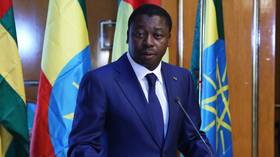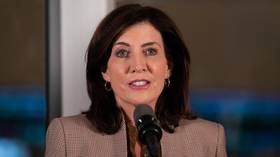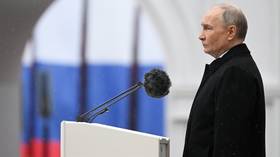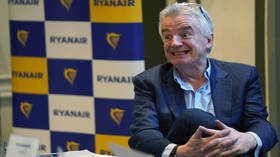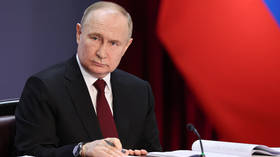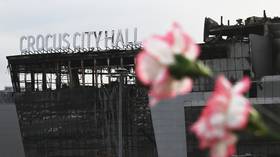West speaks out against breakaway republics' independence
A number of Western countries have voiced their opposition against Russia’s decision to recognise the independence of South Ossetia and Abkhazia.
A French Foreign Ministry spokesman said: “We consider this is a regrettable decision and I recall our attachment to the territorial integrity of Georgia.” French President Nicolas Sarkozy helped broker the ceasefire in South Ossetia which ended the fighting. Foreign Minister Bernard Kouchner later confirmed France’s position in a parliamentary committee meeting: “We decisively condemn this decision.”
The German Chancellor Angela Merkel said the Russian decision to recognise South Ossetia and Abkhazia was “absolutely unacceptable”. Speaking in the Estonian capital, Tallinn, Merkel said the recognition of the breakaway republics’ independence “contradicts principles of territorial integrity as a fundamental right.”
Earlier in the day she was joined at a press conference by Estonian Prime Minister Andrus Ansip, who pledged: “Europe will not leave Georgia on its own.”
In the United States, Secretary of State Condoleezza Rice said that a Russian motion to recognise the independence of the two republics would be “dead on arrival” in the UN Security Council. She added that it puts Russia “in opposition to a number of Security Council resolutions to which it is party”.
The United Kingdom also condemned Russia’s actions. “We reject this categorically and reaffirm Georgia's sovereignty and territorial integrity,” a UK Foreign Office spokesperson said.
British Foreign Secretary David Miliband has called for the formation of a strong coalition to counteract the Russian decision. “I am holding talks today with international partners and will be visiting Ukraine tomorrow to ensure the widest possible coalition against Russian aggression in Georgia,” he said.
A spokesperson for the office of EU High Representative for the Common Foreign and Security Policy, Javier Solana, said on Tuesday: “The European Union confirms its support for Georgia and its territorial integrity.”
NATO General Secretary, Jaap de Hoop Scheffer, also said: “NATO fully supports the sovereignty and territorial integrity of Georgia and calls on Russia to respect these principles.” He claims Russia is violating UN resolutions concerning Georgia’s territorial integrity. But what for NATO is a breach of contract, for Russia is double standards.
When Kosovo declared independence in February, 46 UN countries formally backed the bid – France, the UK and U.S. among them. Moscow now says it’s not to be lectured by those who opened what it sees as Pandora’s Box.
Russia’s Envoy to NATO, Dmitry Rogozin said: “How is it possible to recognise Kosovo, to rip a piece out of Serbia, a country that’s been sovereign for much longer than Georgia, and now talk about protecting Georgia’s territorial integrity? Choose what it is that you’re defending.”
And it’s a view echoed by analysts. According to Marc Almond from Oriel College, Oxford, “the fact that the West has pushed through Kosovo situation means that the West is in a very weak position to say that the situation in Abkhazia and South Ossetia somehow transgresses the international law”.
“I’m afraid international law was ripped up in February on this sort of issue,” he said.




